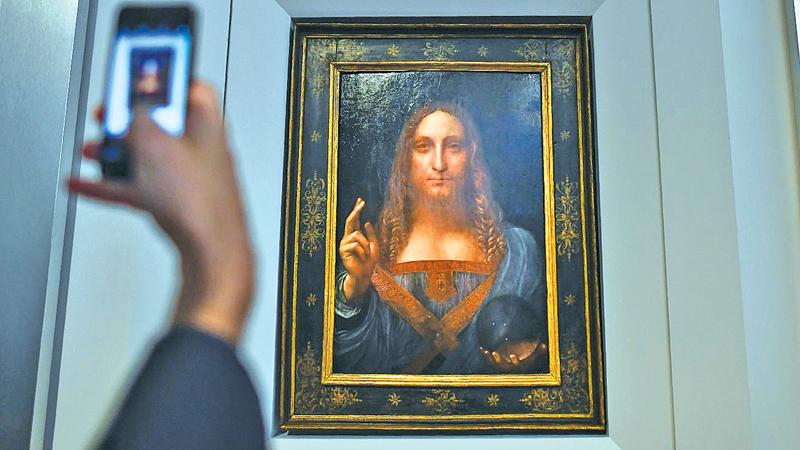
Over the past few years, the art world has seen some astronomical bids for the works of famous painters. In 2015, Pablo Picasso’s Women of Algiers became the most expensive painting to be sold in an auction, after an anonymous buyer paid $179 million. That same year, a $300 million private sale of Willem de Kooning's abstract landscape Interchange broke the record for the most expensive artwork ever sold. However, both the sales pale in comparison to the $400 million paid for Leonardo da Vinci’s Salvator Mundi on November 14. The buyer also paid an additional $50.3 million to cover the auction house’s fees and taxes.
The painting, which depicts Jesus Christ in a blue robe holding a crystal orb believed to represent Earth, is one of about 20 known paintings by the Italian Renaissance polymath and the only one held in a private collection. In addition to being rare, Salvator Mundi also has a fascinating history. First recorded in 1649 as part of the collection held by King Charles I of England, the painting was sold to the Duke of Buckingham in 1763. However, it vanished soon after and was assumed to be lost or destroyed. When the painting, damaged from restoration attempts, resurfaced in the 1900s, experts thought it was a copy, painted by one of Da Vinci’s disciples.
It was, therefore, not surprising that the painting sold for a paltry $60 in 1958. In 2005, a group of American art dealers acquired it for about $10,000. After restoring the damaged artwork which had been partly painted over, the collectors consulted with experts who concluded that it was an authentic da Vinci painted around the same time as his world-renowned Mona Lisa. In 2013, Russian billionaire Dmitry Rybolovlev, who held it until the recent sale, purchased the painting for $127.5 million.

Though the artwork’s intriguing background was undoubtedly a factor in the astronomical sale price, Christie’s marketing strategy also played a significant role. The New York-based auctioneer, which described Salvator Mundi as one of the most significant artistic finds in the past century, took it on tour to London, Hong Kong, and San Francisco, where it was viewed by a record 27,000 people. They also filmed a promotional video featuring Hollywood actor Leonardo DiCaprio, and musician, writer & artist Patti Smith admiring the 26-inch tall painting’s beauty.
The furor and excitement created by the campaign paid off handsomely. The bidding between the five potential buyers, only one of whom was physically present, started at $75 million and quickly escalated to $200 million. With three buyers bowing out, the bidding appeared to slow somewhat before one of the telephone buyers helped push the price to $300 million and then to an astounding $400 million. The entire process lasted less than 20 minutes! Though no one knows for sure, some speculate it was purchased by Chinese billionaire Liu Yiqian, known for his penchant for costly art.
As would be expected, Christie’s is tremendously pleased with the outcome. Loic Gouzer, co-chairman of post-war and contemporary art at Christie's, later said, "Salvator Mundi is a painting of the most iconic figure in the world by the most important artist of all time. We are extremely pleased with the record-breaking result for this remarkable and historical work." However, some experts argue that the buyer paid too much. Among them is renaissance art expert Lynn Catterson, who calls the sale “ridiculous and endemic to a planet whose economic disparities are worse than severe.” Just proves that beauty (and price) are in the eyes of the beholder!
Resources: npr.org,telegraph.co.uk, artnet.com